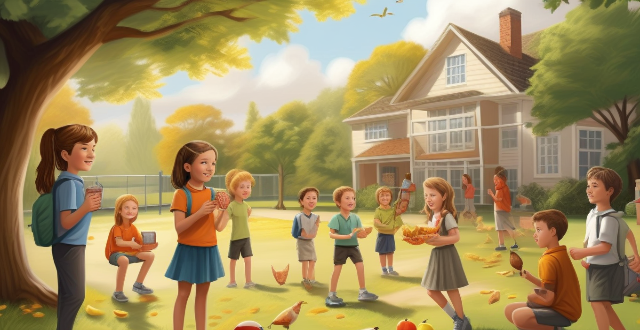Climate change affects children's access to education through extreme weather events, health impacts, food security issues, and displacement and migration. These challenges make it difficult for children to attend school or continue their studies. It is crucial to take action now to mitigate the effects of climate change and protect the future of education.

Impact of Climate Change on Children's Access to Education
Climate change is a global phenomenon that affects every aspect of life, including education. The impact of climate change on children's access to education is significant and far-reaching. In this article, we will explore the various ways in which climate change affects children's access to education.
Extreme Weather Events
One of the most immediate impacts of climate change on children's access to education is through extreme weather events such as hurricanes, floods, and droughts. These events can cause physical damage to schools, making them unsafe or even impossible to use. For example, during Hurricane Katrina in 2005, many schools in New Orleans were destroyed, leaving thousands of children without a place to learn.
Key Points:
- Extreme weather events can cause physical damage to schools.
- This damage can make schools unsafe or even impossible to use.
- Thousands of children may be left without a place to learn.
Health Impacts
Climate change also has health impacts that can affect children's ability to attend school. For example, rising temperatures can lead to heat stress, which can cause dehydration and other health problems. Additionally, changes in rainfall patterns can lead to an increase in waterborne diseases, which can keep children home sick from school.
Key Points:
- Rising temperatures can lead to heat stress.
- Heat stress can cause dehydration and other health problems.
- Changes in rainfall patterns can lead to an increase in waterborne diseases.
- Waterborne diseases can keep children home sick from school.
Food Security
Climate change can also affect children's access to education by impacting food security. Changes in temperature and rainfall patterns can lead to crop failures, which can result in food shortages. When families do not have enough food to eat, children may be forced to miss school or even drop out altogether.
Key Points:
- Changes in temperature and rainfall patterns can lead to crop failures.
- Crop failures can result in food shortages.
- Food shortages can force children to miss school or even drop out altogether.
Displacement and Migration
Finally, climate change can lead to displacement and migration, which can also affect children's access to education. As communities are forced to move due to rising sea levels or other climate-related disasters, children may be uprooted from their homes and schools. This can disrupt their education and make it difficult for them to continue their studies.
Key Points:
- Climate change can lead to displacement and migration.
- Displacement and migration can disrupt children's education.
- It can be difficult for displaced children to continue their studies.
In conclusion, the impact of climate change on children's access to education is significant and multifaceted. From extreme weather events to health impacts, food security issues, and displacement and migration, climate change poses numerous challenges to ensuring that all children have access to quality education. It is essential that we take action now to mitigate the effects of climate change and protect the future of education for generations to come.